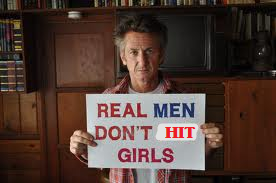"mind-body dichotomy," but I came across the concept in her writings and thus
she gets the credit. The idea is simple: people tend to view a human being as split
in two, between mind and body, and somehow feel pressured to choose between the
parts instead of honoring the whole. Rand used this concept mainly to criticize
religion on the one hand and mindless hedonism on the other. However, lately I
have been thinking of it also as a way to explain our views of freedom and why
it is nowadays so difficult to "sell" either in culture or in politics. It is fashionable in today's political discourse to talk of
"personal" vs. "economic" freedom, and for label-happy politicians to try and
stake the claim to one or the other, but somehow, inexplicably, not both. In
reality, just as a human being's body and soul are one, there is fundamentally
only one kind freedom. Moreover, just as soul cannot exist in this world
without a body, personal freedom rests firmly on the economic. Let's consider
some examples to clarify.
Personal freedom of speech does not on its face
require money. You and I can talk freely about issues and unless we piss off a
particularly vengeful IRS agent, we'll be just fine. However, if I start
feeling particularly passionate about my views and want everyone to know about
them, I will need money to promote my ideas: to publish a book, to hold a
rally, to make a movie, to buy an ad on TV, even to print and distribute
flyers. Any artist with a worldview a bit outside of the mainstream will know
exactly of what I speak. Speech is only worth so much when you can't make your
voice heard.
Personal freedom of religion allows me to
worship in my home, but every major religion acknowledges special power of
group prayer. To hold such prayers, I would need physical space, religious
paraphernalia, prayer books, and most of the time paid clergy as a leader- all
of it requiring significant investment.
more fundamental to freedom? Well, this particular freedom is directly related
to a prosperous society and, in relation to the whole of human history, is a
recent development. Marriage used to be an economic transaction, and a tool for
survival of tribes, villages, and even entire countries. Now we see arranged
marriage customs falling apart in countries that are becoming more prosperous
because young people have more economic independence and can afford the luxury
of love. Remember the "Do You Love Me?" song from Fiddler on the Roof? Tevye
and his wife had been so wrapped up in day-to-day survival, "love" was not even
in the vocabulary until the world started changing around them.
does is relate to freedom being a hard "sell" to the new generation? Simply
put, because all freedom requires some economic basis to be fully exercised, it
necessarily requires work. Somehow we, as a society, have managed to make "work"
mean opposite of "freedom," disconnecting the abstract concept of freedom from
its physical prerequisites. Is it any wonder we are getting so close to losing
both?

(Please observe your official Spoiler Warning.)
In the recent Captain America: The Winter Soldier, HYDRA is the science wing of the Nazi SS during World War II. Almost 70 years after the war's conclusion, the organization lives on as a secret society whose acolytes include many defense personnel, government bureaucrats and politicians. With the American defense agency S.H.I.E.L.D. now controlled by HYDRA, they plan to launch a preemptive strike on the global public, killing 20 million people identified by data mining and NSA-style panopticon surveillance as potential dangers to world order.
(Their vision, in other words, is to make sure everything goes on largely as it has been. Hard to think of a more damning comment on America's status quo.)
Much as I otherwise enjoyed the movie, using HYDRA to explain S.H.I.E.L.D.'s corruption was lazy. We have recent examples to illustrate that it doesn't take a secret society to corrupt the State.
For instance, it's not like Lois Lerner and her fellow Obamatons whispered some leftoid equivalent of "Hail HYDRA" in one another's ears as they hatched the plan to use the IRS to target conservatives. (If they did, it would be something alliterative and collectivist, yet also alternative lifestyle-positive. "Masturbate Marx", perhaps.) Instead, they all simply shared the same understanding--the same conceptual metaphor--of their political adversaries. Some variation of "conservatives are evil",evil in this case being a noun rather than an adjective.

No secret groups or decoder rings needed. Just like-minded people following their beliefs to their natural conclusion. An organic conspiracy.
This is chilling in its implications. A real life HYDRA-equivalent would lose its power once it was uncovered, so much of its success depending on secrecy. The kind of organic conspiracy we see in the IRS scandal, on the other hand, loses nothing once a Lois Lerner is identified. Because an organic conspiracy has no formal structure, people that think precisely like her will remain undetected in their respective agencies,. They will wait like a dormant virus to activate once conditions are again favorable. And then they will once more use government apparatus to wage war against their supposed fellow citizens.
How to deal with these bureaucratic pod people? Shrinking the size of government would of course be the best way to lessen their power, but it's a joke to think that'll happen near-term.
Let us begin by at least updating our own conceptual metaphors. Given that our present age is one where politics is war by other means, thinking of leftoids as naive but well-intentioned idiots isn't very adaptive. Rather, we should start thinking of them in terms similar to how they think of us. Perhaps then we'll evolve some organic conspiracies of our own, if only in self-defense.
If anyone ever had a shot at establishing some kind of socialist utopia, it was the Pilgrims. There were only a little over a hundred that landed, and by the end of the first winter half of them had died, so this was not a group unmanageable by sheer number. Most were of one mind in their Separatist faith, and even the "Strangers" among them knew well the religious notions of those with whom they had shipped and cast their lot. Furthermore, their contract with the "Adventurers" (i.e. investors) provided that for seven years "...all such persons as are of this colony are to have their meat, drink, apparel, and all provisions out of the common stock and goods of said colony." And they had only to open their well-thumbed King James Bible to see the example set by the first Christian "get together" in Jerusalem after the Pentecost: "All that believed were together and had all things in common; And sold their possessions and goods, and parted them to all men, as every man had need." Acts 2:44-45. So how did it work out? We will let Gov. Bradford tell us all about it:
The experience that we had in this common course and condition, tried sundry years and that amongst godly and sober men, may well evince the vanity of that conceit of Plato's and other ancients applauded by some of later time; that the taking away of property and bringing in community into a commonwealth would make them happy and flourishing; as if they were wiser than God... Let none object this is men's corruption, and nothing to the course itself. I answer, seeing all men have this corruption in them, God in His wisdom saw another course fitter for them."
After the first year or so of barely avoiding starvation, they said to hell with the "Adventurer" scheme of things (well, given who they were and why they were there they probably didn't say it quite THAT way) and they "...gave way that they should set corn every man for his own particular, and in that regard trust to themselves... and so assigned to every family a parcel of land." The result? From 1621 to 1623 they went from 26 acres of crops to 184 acres, and the crisis times were over.
Gov. Bradford, a 150 years before Adam Smith would write An Inquiry into the Nature and Causes of the Wealth of Nations, realized through bitter experience that any economic and governmental system must eventually account for man's fallen nature, and guide his self-interest towards the common good, just as the early Christian community did as it expanded. To Bradford, the "invisible hand" Smith discoursed upon was not so invisible, and he knew quite well to whom it belonged.
Plenty of good reasons to fear the end is nigh. But remember the fate of those hopeful prognostications of doom for the oil industry. Each time, predictions of Peak Oil were frustrated by unforeseen developments. People discovered new oil fields. People invented new technologies to access oil or gas from pockets that were thought to be out of reach or exhausted. And people developed resources on private land, overcoming attempts at interference from governments and political pressure groups.1. Spying on our calls and online communications by the executive branch2. The systematic misuse of tax collection authorities to suppress political free speech3. A Justice Department that systematically refuses to enforce the law based on political affiliation4. A Chief Executive who regularly rewrites legislation that was passed by Congress5. Domination of the media by institutions that are aligned with the regime's political agenda6. An entrenched education bureaucracy that systematically imposes its political values on students and actively suppresses opposing points of view7. The use of paramilitary forces by the government to collect what amounted to overdue property taxes
Look, Boko Haram didn't just show up yesterday. They're an al Qaeda offshoot that's been active in northern Nigeria for a decade now. And by "active," I mean to say, "killing people." You know, for freedom and stuff. Well, it looks like they've finally gone too far now, because after kidnapping hundreds of schoolgirls, the terrorist group has finally felt the hashwrath of Hollywood's elite:

Wait, who changed Sean's sign? That's not the, uh... this isn't about... uhhhh...
Bueller?
Bueller?
Anyway, with Operation Pouty Face in full swing, we might as well loosen our collars, kick back and go on watching our reality TV shows. The heroes are here now.
 Marina Fontaine
Marina Fontaine Stephen McDonald
Stephen McDonald Michael Sheldon
Michael Sheldon Tom Weiss
Tom Weiss David Churchill Barrow
David Churchill Barrow Erich Forschler
Erich Forschler David S Bernstein
David S Bernstein Site
Site